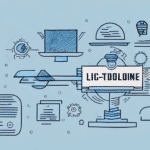Importance of Customer Trust in Ecommerce
Building customer trust is fundamental for the success of any ecommerce store. Trust not only encourages customers to make their first purchase but also fosters loyalty, leading to repeat business and positive word-of-mouth referrals. According to a Nielsen study, 66% of consumers trust online reviews and peer recommendations as much as personal recommendations from friends and family.
Why Customer Trust is Crucial for Your Ecommerce Store
Customer trust serves as the backbone of successful ecommerce operations. Trust translates into higher conversion rates, increased customer retention, and a stronger brand reputation. When customers believe in the reliability and integrity of your store, they are more inclined to make purchases and recommend your business to others.
Key strategies to build trust include:
- Excellent Customer Service: Promptly addressing inquiries and resolving issues demonstrates your commitment to customer satisfaction.
- Transparent Return Policies: Clear and fair return policies reassure customers that they can shop with confidence.
- Secure Website Practices: Implementing robust security measures protects customer data and builds trust.
Understanding the Importance of Online Reputation Management
In the digital landscape, your online reputation can significantly impact your business's success. Effective reputation management involves monitoring and addressing online feedback, maintaining a positive presence on review sites, and engaging with customers on social media. A strong online reputation enhances credibility and attracts new customers.
Proactive reputation management allows you to:
- Respond to negative feedback constructively, turning dissatisfied customers into loyal ones.
- Highlight positive reviews and testimonials to showcase your strengths.
- Engage with your audience to build a community around your brand.
For more insights on managing your online reputation, refer to the Forbes Agency Council article.
Enhancing Website Security
Ensuring the security of your ecommerce website is paramount in building and maintaining customer trust. Security breaches can lead to loss of sensitive customer information, damaging your reputation and resulting in financial losses.
Building Trust through Secure Payment Options
Offering secure payment options is essential to protect customer financial data and build trust. Implementing SSL certificates encrypts data transmission, ensuring that customer information remains confidential. Displaying trust badges and secure checkout icons prominently on your website can reassure customers about the safety of their transactions.
Statistics show that 83% of online shoppers consider trust seals and secure payment icons important when making a purchase online (HubSpot).
How to Enhance Website Security and Build Trust Among Customers
Beyond secure payment options, enhancing overall website security involves several key practices:
- Regular Software Updates: Keep your website's software and plugins up to date to protect against vulnerabilities.
- Two-Factor Authentication (2FA): Adding an extra layer of security helps prevent unauthorized access.
- Web Application Firewall (WAF): A WAF helps protect your site from common cyber threats and attacks.
- Regular Backups: Maintain regular backups of your website to recover quickly in case of a security breach.
Implementing these measures not only safeguards your store but also instills confidence in your customers, as highlighted by the CSO Online.
Leveraging Social Proof
Social proof is a powerful tool in building customer trust. It involves using feedback, reviews, and endorsements from existing customers to influence potential buyers.
The Role of Product Reviews in Building Customer Trust
Product reviews serve as social proof, providing potential customers with insights into the quality and reliability of your products. Encouraging customers to leave reviews not only boosts credibility but also contributes to SEO by generating fresh, keyword-rich content.
Research indicates that 94% of consumers use product reviews to guide their purchasing decisions (BrightLocal).
Building Credibility with Social Proof and Testimonials
Testimonials from satisfied customers enhance your store's credibility. Featuring success stories, case studies, and customer logos can effectively showcase your brand's reliability and quality.
Additionally, displaying social media follower counts and trust badges can further reinforce credibility. Highlighting any awards or industry recognitions also adds to your brand's trustworthy image.
The Impact of User-Generated Content on Building Customer Trust
User-generated content (UGC), such as photos, videos, and social media posts from customers, provides authentic and relatable content that can significantly influence purchasing decisions. UGC not only enhances engagement but also serves as a testament to customer satisfaction.
Incorporating UGC into your marketing strategy can lead to increased trust and a sense of community around your brand, as supported by the Social Media Examiner.
Transparent Policies and Customer Service
Transparency in policies and exceptional customer service are critical components in building and maintaining customer trust. Clear communication and responsiveness demonstrate your commitment to customer satisfaction.
Creating a Transparent Return Policy to Build Trust with Customers
A transparent return policy provides customers with the confidence to make purchases, knowing they have the option to return products if necessary. Ensure that your return policy is easy to understand and prominently displayed on your website.
Benefits of a clear return policy include:
- Reduced customer anxiety about online purchases.
- Lower incidence of negative reviews related to returns.
- Opportunities to identify and rectify product or service issues.
The Power of Personalized Customer Service in Building Trust
Personalized customer service fosters a deeper connection with your customers. Tailoring interactions and recommendations to individual preferences shows that you value their business and understand their needs.
Implementing tools like chatbots and segmented email marketing can enhance the personalization of your customer service, leading to higher satisfaction and loyalty.
Strategies for Overcoming Common Ecommerce Store Trust Barriers
Common trust barriers in ecommerce include concerns about shipping times, return processes, and website usability. Addressing these barriers involves:
- Reliable Shipping: Provide accurate shipping estimates and reliable delivery services.
- Easy Returns: Simplify the return process to make it hassle-free for customers.
- User-Friendly Website: Ensure your website is easy to navigate, mobile-responsive, and free of technical issues.
By proactively addressing these issues, you can mitigate trust barriers and enhance the overall customer experience.
Building Brand Identity and Marketing Strategies
A strong brand identity differentiates your ecommerce store from competitors and builds a foundation of trust with your target audience. Effective marketing strategies further reinforce your brand's presence and reliability.
Building a Strong Brand Identity to Build Trust with Customers
Your brand identity encompasses elements like your logo, color scheme, and brand voice. Consistency in these elements across all platforms helps create a memorable and trustworthy image. A well-defined brand identity resonates with your target audience, fostering recognition and loyalty.
Ensure that your brand values and messaging are clearly communicated through your website, packaging, and marketing materials.
How to Leverage Influencer Marketing to Build Customer Trust
Influencer marketing involves partnering with individuals who have a significant following and influence within your target market. Collaborating with reputable influencers can enhance your brand's credibility and reach.
Choosing the right influencers—those who align with your brand values and have an engaged audience—can lead to authentic endorsements that resonate with potential customers.
The Benefits of Offering Free Shipping and How it Builds Customer Loyalty
Offering free shipping is a compelling incentive for customers, often leading to increased sales and customer loyalty. Free shipping reduces the perceived risk of purchasing and can be a decisive factor in a customer's buying decision.
To implement free shipping effectively:
- Set minimum purchase thresholds to manage costs.
- Promote free shipping offers prominently on your website and marketing channels.
- Consider offering free shipping during special promotions or holidays.
Measuring and Maintaining Trust
Measuring the effectiveness of your trust-building efforts is essential for ongoing success. By analyzing key metrics and customer feedback, you can refine your strategies to better meet customer needs and expectations.
Measuring the Success of Your Efforts to Build Customer Trust
Utilize tools like Google Analytics to track important metrics such as website traffic, conversion rates, and customer behavior patterns. Additionally, monitor customer feedback through surveys and reviews to assess satisfaction levels and identify areas for improvement.
Key performance indicators (KPIs) to consider include:
- Customer retention rates
- Average order value
- Net Promoter Score (NPS)
Regularly reviewing these metrics helps you understand the impact of your trust-building initiatives and make data-driven decisions to enhance your ecommerce store.
Conclusion: Tips for Maintaining and Growing Customer Trust in Your Ecommerce Store
Maintaining and growing customer trust is an ongoing process that requires continuous attention and effort. Here are some key tips to ensure lasting trust with your customers:
- Consistent Communication: Keep customers informed about order statuses, updates, and any changes to policies.
- Continuous Improvement: Use customer feedback to make necessary improvements to your products and services.
- Engage with Your Community: Build a community around your brand through social media engagement, loyalty programs, and exclusive offers.
- Transparent Practices: Maintain transparency in all business operations, including pricing, sourcing, and data handling.
By prioritizing customer trust, you can build a loyal customer base and establish a successful ecommerce store that thrives in a competitive marketplace.




















